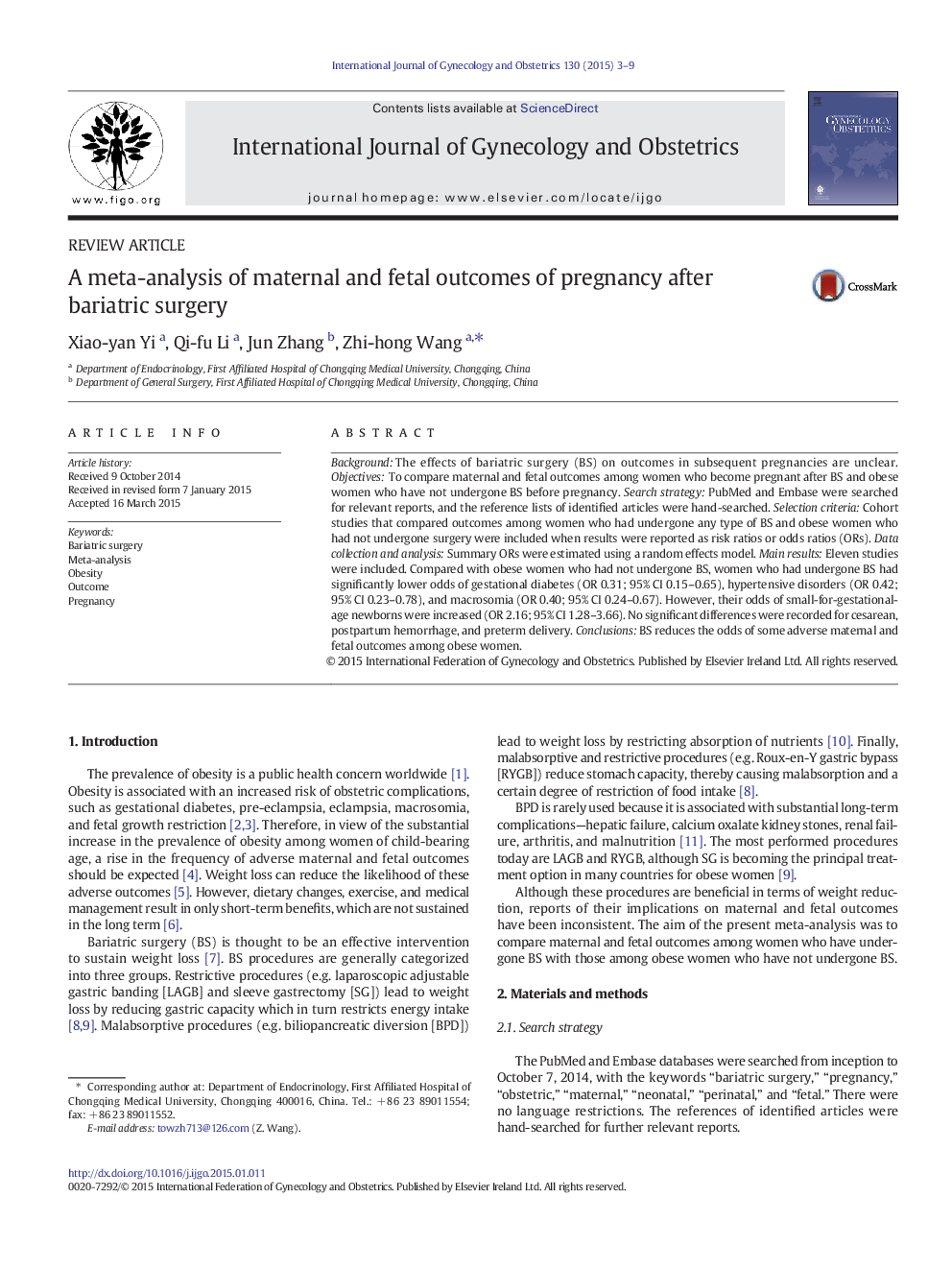| Article ID | Journal | Published Year | Pages | File Type |
|---|---|---|---|---|
| 3954134 | International Journal of Gynecology & Obstetrics | 2015 | 7 Pages |
BackgroundThe effects of bariatric surgery (BS) on outcomes in subsequent pregnancies are unclear.ObjectivesTo compare maternal and fetal outcomes among women who become pregnant after BS and obese women who have not undergone BS before pregnancy.Search strategyPubMed and Embase were searched for relevant reports, and the reference lists of identified articles were hand-searched.Selection criteriaCohort studies that compared outcomes among women who had undergone any type of BS and obese women who had not undergone surgery were included when results were reported as risk ratios or odds ratios (ORs).Data collection and analysisSummary ORs were estimated using a random effects model.Main resultsEleven studies were included. Compared with obese women who had not undergone BS, women who had undergone BS had significantly lower odds of gestational diabetes (OR 0.31; 95% CI 0.15–0.65), hypertensive disorders (OR 0.42; 95% CI 0.23–0.78), and macrosomia (OR 0.40; 95% CI 0.24–0.67). However, their odds of small-for-gestational-age newborns were increased (OR 2.16; 95% CI 1.28–3.66). No significant differences were recorded for cesarean, postpartum hemorrhage, and preterm delivery.ConclusionsBS reduces the odds of some adverse maternal and fetal outcomes among obese women.
